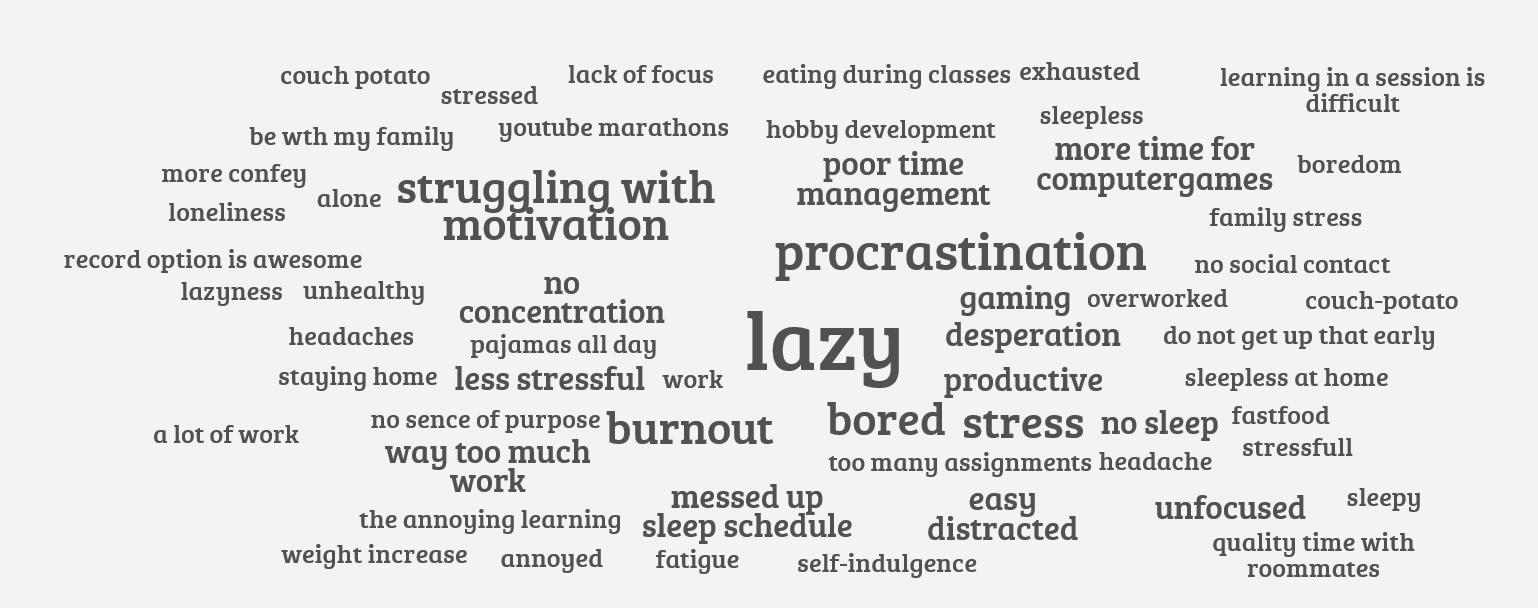What makes online teaching effective? We have been asking ourselves this question not only since Covid-19 outbreak – in fact, we have been racking our brains over it at IIT for many years. Thanks to our part-time degree programmes “Mobile Software Development” and “Software Design” we are able to draw on previous experiences in online teaching. Nevertheless, every online unit is a challenge and we always find ourselves pondering on the following question: Does teaching English online make sense or not? Our answer is: YES and NO. It has some pros and cons.
Struggling with my online teacher self: online teaching is like a rollercoaster
Heidemarie Köllinger und Petra Kletzenbauer, 07. Juli 2020
Pros
Again and again students feed back to us that they can concentrate better in an online setting. This might have to do with the fact that sitting in front of the PC offers them more of a distraction-free environment and provides them with the privacy they need for effective learning (and this despite of the actually enhanced exposure that they are faced with on the Internet). Activity and teamwork is therefore not something that must be carried through at all cost.
Teamwork and collaboration can be so much fun in online classes, though. With the many free web-based applications and features available online, card-based activities, mind mapping, surveys, poster production, etc. take a novel, digital twist. Such in-class and out-of-class assignments are usually well-received by the students. Approaches which are sharing- or enquiry-based can be easily implemented in online classes and, with the Internet and its wealth of – very often – useful information just an arm’s length away, offer so much room for self-directed learning.
In addition to all that, it offers us lecturers of foreign languages, the opportunity to take on the role of “Big Brother/Sister” and surreptitiously listen to our students. Sometimes a “Hush, she is listening” can be heard, but mostly we go unnoticed and that is great as we are in the position to collect a lot of language feedback for the students which we can later decide to give them in private or in public, in written or in oral form. Getting the students’ consent to record them or the presentation of their outcomes on audio or video for feedback later is another fantastic tool that the online setting lends itself to. Embedded in fun and purposeful language activities it can have enormous edutainment value for students and lecturers alike.
Cons
Familiarizing yourself with various online tools (e.g. Etherpad, Moodle, MS Teams, BBB) and taking different forms of media into consideration (i.e. audio, video, websites, discussion forums, live chats, podcasts etc.) is a daily challenge and requires detailed planning in order to create learning communities that encourage dialogue and deep thinking. Spontaneous decisions in your lesson planning are hard to realize as every step in your teaching has to be prepared in advance, which limits your immediate responsiveness to students’ needs. In other words, your subjective teacher well-being is constantly challenged to deliver creative and motivating lessons. This is especially true when trying to perceive and react to students’ emotions.
Another negative aspect is that online teaching itself is very exhausting. You need small group sizes to increase the level of engagement since many students take the online class as an opportunity to be “invisible” in order to avoid speaking in front of the whole group.
Understanding students’ emotional online world is one of the key factors of running successful distance learning classes. Learning a foreign language requires constant interaction, fruitful mutual exchanges and the generation of synergies. This is a setting an online session can never compete with.

Photo: (c) Petra Kletzenbauer
Meet Petra\’s and Heidis online student self by

Conclusion after 6 weeks of distance learning
The statement that online teaching can replace traditional academic teaching is a fallacy. This is especially true for foreign language teaching. Learning a language requires contact and direct exchange with students. Of course, online teaching can support this, but you will soon reach your limits – this applies not only to students but also to teachers.
Nonetheless, we are impressed by the attitude of our students. Their engagement and understanding of the past weeks have shown that together we are able to manage unexpected scenarios. It is – of course – difficult to make compromises but the positive feedback from our students helps to offset the inner struggle with our online teacher self.
Thank you.
Tipp
You can find more information about our degree programmes on the FH JOANNEUM website.
If you would like to get a view on online teaching of students, please read our blog post “#studyonline: Computer science – routine for some, uncharted territory for others“.







